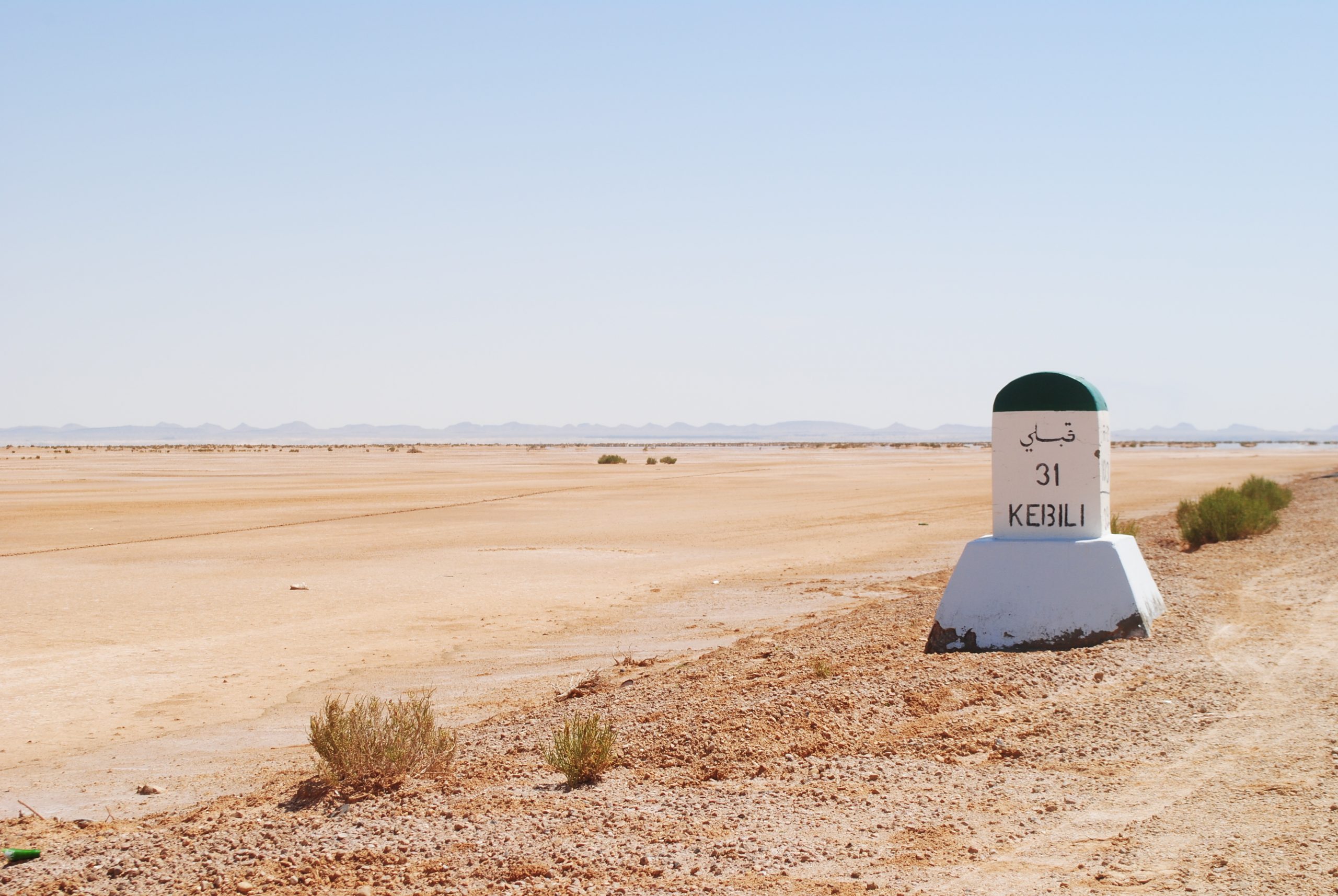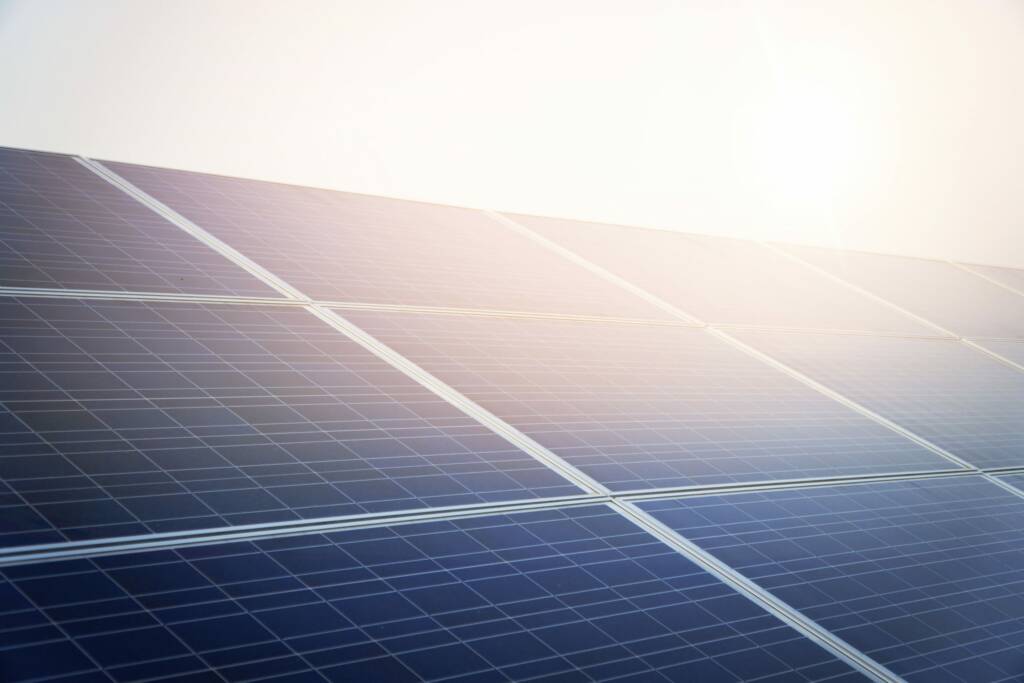
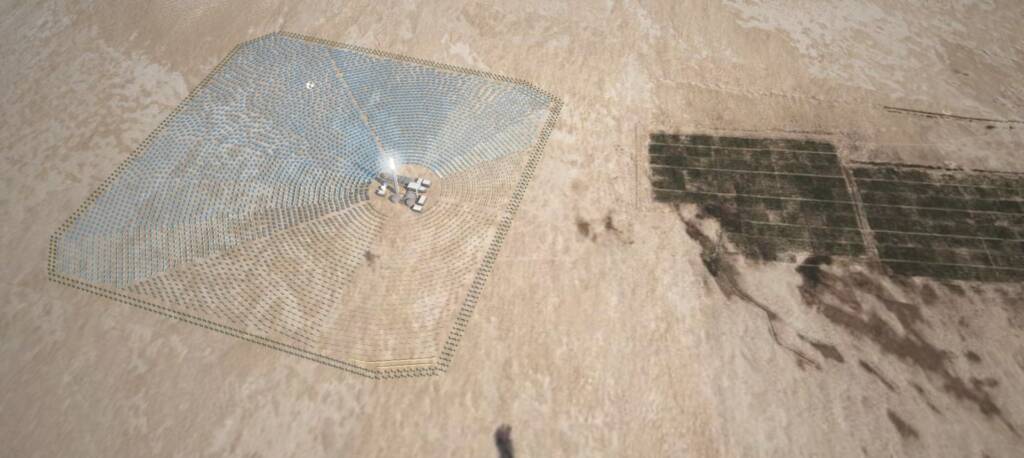
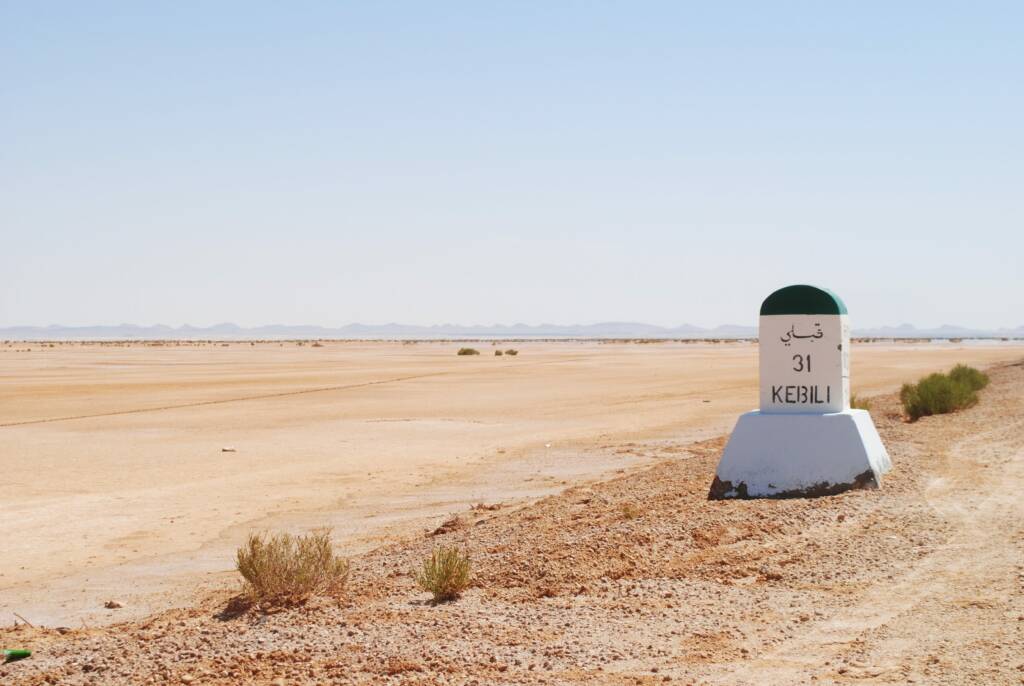
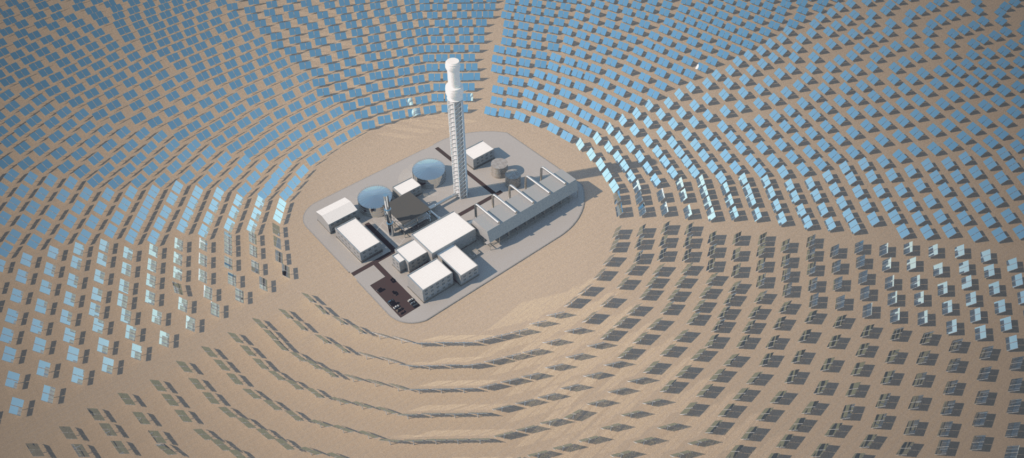

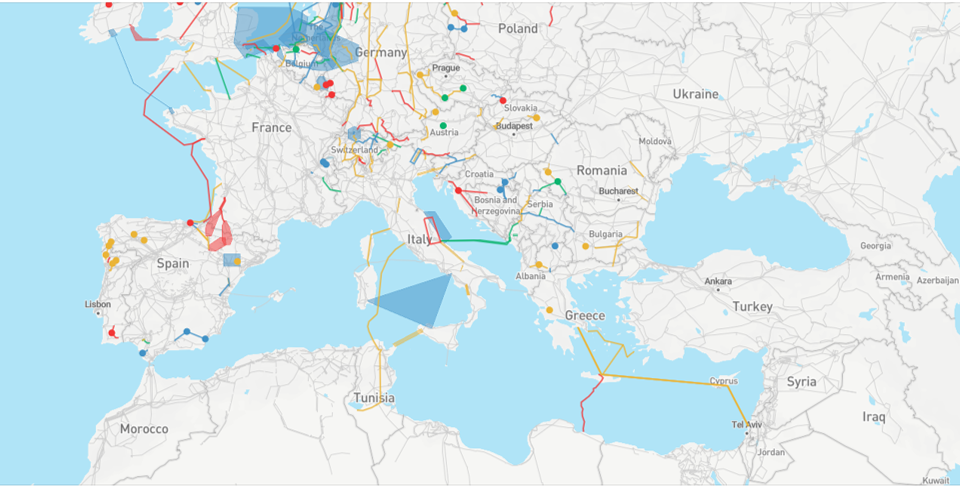
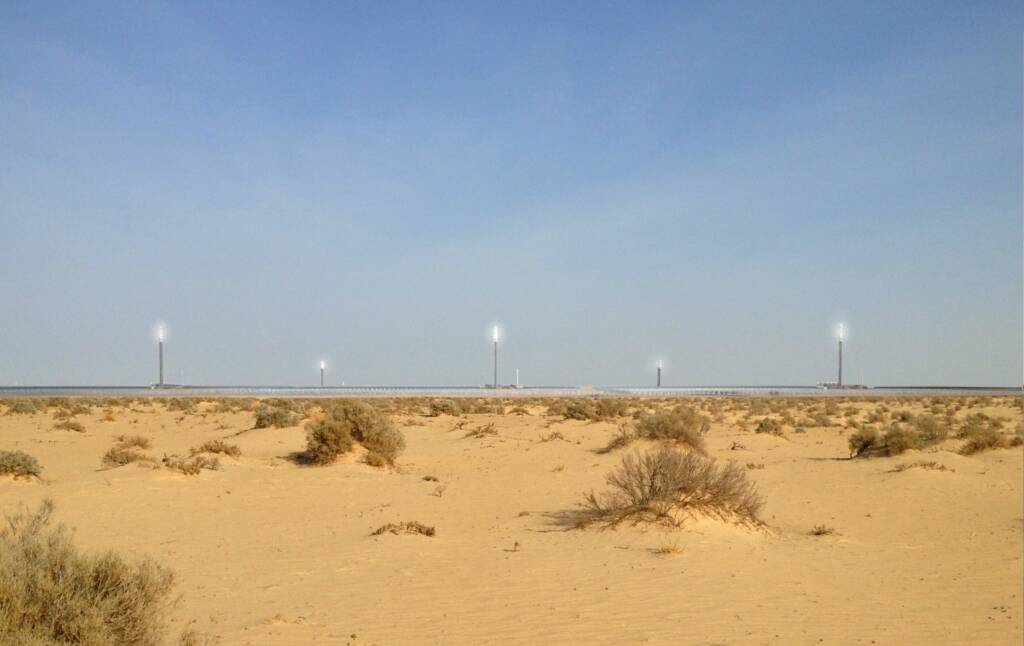
Solar and wind power are infinite, and Tunisia has an abundant supply of both. Therefore in parallel to using solar and wind to support Tunisia’s electricity growing needs and energy transition, they can be used to create a sustainable export industry to neighbouring countries.
Along with its national projects, TuNur is developing a series of export projects that will provide unsubsidized electricity to surrounding markets and contribute significantly to the socio-economic and energy growth of Tunisia. TuNur develops export projects in collaboration with the local community and regional and international partners specializing in the production and transport of electricity.
The export projects typically consist of three projects in one including i) Large scale hybrid renewable energy plants in Southern Tunisia; ii) High voltage direct current (HVDC) transmission line to transporting electricity over long distances and underwater; and finally iii) Sale of power on a long term basis into the European market to provide the EU with an alternative source of basic renewable energy and save over 5 million tonnes of CO2.
Export projects will stimulate significant benefits to Tunisia by creating a sustainable new export industry, supporting Tunisia’s economic growth, regional integration and energy transition.
Key benefits
Some of the main benefits of the project are:
- Increase renewable energy project development in Tunisia and prevent against the further desertification of the Sahara.
- Boost economic development across Gabes using local services, workforce and industries where possible.
- Futher energy security of Tunisia by providing a major new source of reliable low carbon power covering growing energy demand.
- Help the decarbonozation of the gion contrbuing to the ight n global warming and reducing reiance on CO2 emiting fuels.
- Create multi-skilled employment and increase trade between public and private sectors.


